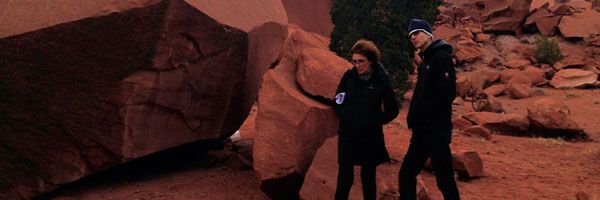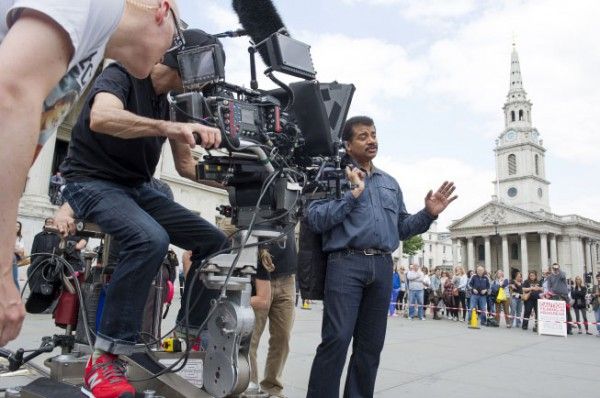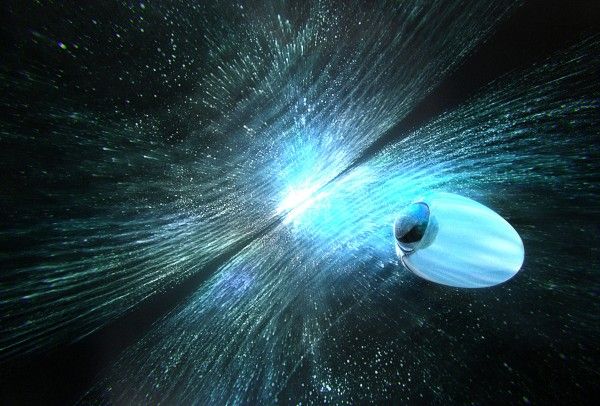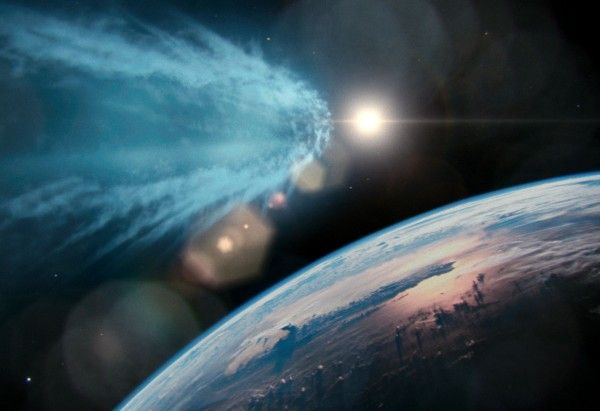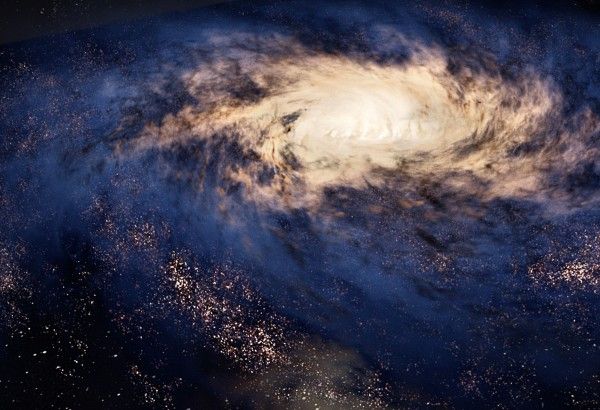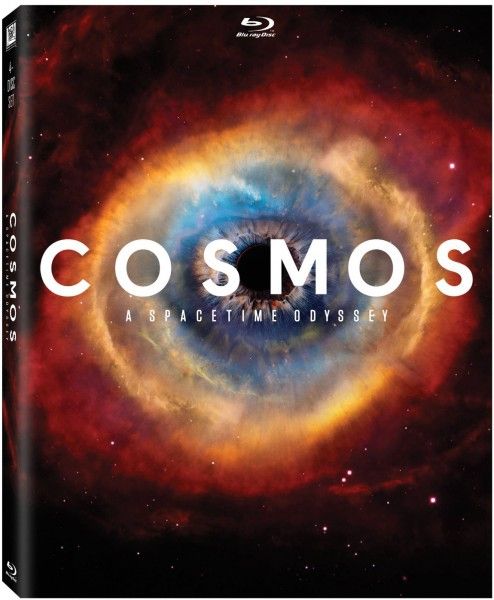More than three decades after the debut of Carl Sagan’s groundbreaking and iconic series, Cosmos: A Personal Voyage, host and astrophysicist Neil deGrasse Tyson is exploring the infinite expanse of the universe in the epic 13-episode Cosmos: A SpaceTime Odyssey, airing Sunday nights on Fox and available on Blu-ray/DVD on June 10th. It is an adventure across space and time, with humanity’s heroic quest for knowledge and the laws of science at its core.
During this recent exclusive phone interview with Collider, the show’s cinematographer Bill Pope, who also works as a director on the series, talked about what attracted him to the project, how choosing projects is an instinctual thing for him, what he hopes people take away from the experience of watching Cosmos, the challenges specific to shooting a hybrid series like this one, and how necessary it is to be able to ad-lib things on a project like this. He also talked about his working relationship with director Edgar Wright, that he’ll be using the Panavision film cameras for Marvel’s Ant-Man, why he prefers film to digital, his favorite digital camera, why he hasn’t worked with the Wachowskis since The Matrix films, and what all great filmmakers have in common. Check out what he had to say after the jump.
Collider: What was it that attracted you to a project like Cosmos? Was part of the appeal the fact that it is more than just a typical TV show?
BILL POPE: I didn’t have any agenda to go into television, or anything like that. A friend of mine was an associate producer on this, in the early days, and he asked me to come talk to them. They needed a director/DP, and they needed someone to oversee the look of all their disparate departments. He asked me if I would be interested, without even telling me what the project was. I said, “Yeah, that sounds interesting.” He said, “Well, it’s for Cosmos.” And I said, “Yeah, absolutely!” The first Cosmos was an important part of my family, and an important part of my son’s upbringing, so I was deeply interested. So, I went and met everybody and we got along, and we just started right in. But it wasn’t like I had a goal of breaking into science television, even though I watch science television. It’s like another world. They have a skill set that I don’t have. Lurking out in the field to photograph salamanders was not in my skill set. That sort of patience is not my thing.
Do you typically take a lot of time to think about what you can bring to a project before deciding to get involved, or is it a very instinctual decision for you?
POPE: It’s instinctual. I know when there’s a connection, and I know when I can bring something to it. The first thing you do is read it and decide if you would see it and if it’s something you’d be interested in. And then, I have to see if there’s something that I feel I can bring, that’s helpful to the project and might even be better than what anybody else might bring. With Cosmos, I felt like they were missing someone like me that it probably would have taken several people to be. I have a background in science fiction, I have a background in action shooting, and I have a background in shooting some documentaries, deep in the past. And I have directed and I’ve shot. They got a four-for with me. So, I knew it would keep me busy and keep me interested, and I could make a contribution. That’s what I want to do. I want to feel like I’ve done something and am a part of something.
What do you hope people take away from the experience of watching Cosmos?
POPE: What I want is for people to be excited by the universe, and to realize that our five senses – what we can see, hear, taste and feel – is basically just the tip of the iceberg. There’s an entire universe that we can’t see, that affects us, on every level. To be aware of the entire universe is the goal. You want people to know that there’s more to life than just what you can see and taste. There’s more than just what you read about. Only science can give you that. At one point, I had trouble understanding a concept and Neil [deGrasse Tyson] said, “You’re just approaching it with your five senses. You can’t do that. Man has invented math and science, in order to understand the parts of the universe that we know are there because math and science have illustrated it to us. Our brains have shown us that it exists. You can’t understand it with your five senses. You just have to give that up.” I was like, “Damn, all right!” So, that feeling and that teaching moment that Neil gave to me is really what Cosmos is about, for the rest of the planet.
Where there challenges specific to shooting Cosmos?
POPE: I’ve never done such a hybrid as this. It’s a scripted documentary. You have an idea that you want to get across and you have the script, and you’re hoping that you’ll find some place on earth that can be that thing. I’ve never before gotten in a bus with an entire crew and cast, and driven around Europe and jumped out at different locations, and tried to shoot a scene from scratch, in a place I’ve never been before. That really requires a steep learning curve, and it requires you to use everything. I realized that I wasn’t going to get dementia, after that shoot.
Is it hard to decide what you want to shoot with, when you don’t know the surroundings that you’ll be shooting in?
POPE: You do as much work as possible. There is the internet. You can pick up pictures of anything. You can drop Google maps into any situation and take a look at it. If we tried to do this 30 years ago, as they did, it would have been much harder. But, seeing and being there are two different things. It can be all sunny, and when you show up there, it’s not, or vice versa. So, you’ve gotta be able to play a little jazz and ad-lib things, and that’s fun.
You worked with Edgar Wright on Scott Pilgrim and The World’s End, and the visuals for both of those films were just brilliant. Next, you’re shooting Ant-Man for him. Do you know what camera you’re going to use for that?
POPE: Ant-Man will be shot on film with the Panavision cameras. We’ve shot all of his movies on film. He likes it. I like it. I feel more transported. Interestingly, because it’s not as crisp and all-seeing as digital, I’m actually transported by the graphicness of it into the imagery, emotionally. It’s hard for me to explain why I like film, but that’s the best I can come up with.
Do you think there will ever be a point when everything is only shot on digital, or will there be people who still always use film?
POPE: I think there are people that will shoot it forever. It won’t go away. It’s like vinyl, in that sense. It’s also becoming a prestige thing. There’s a whole generation that thinks of it as a prestige format. I’m glad to see that.
Is there anything you can say to tease what you’re going to do with Ant-Man?
POPE: I think that my non-disclosure agreement with Marvel is pretty darn concrete. There’s something in there about being put in a stockade, and being drawn and quartered.
You also worked with the Wachowskis on The Matrix films, and there work is also so incredibly visual. Did they ask you to work on Cloud Atlas, or would you work with them again?
POPE: I would, but I haven’t worked with them since The Matrix. The Matrix 2 and 3 was such a physically and emotionally hard project for all of us, and we just burned out. We all acted not as our most evolved selves. There would have to be some sort of reconciliation. We would have to man-up.
Edgar Wright and the Wachowskis are great filmmakers. Are there things that they have in common, or are they just very different, as far as collaborating and working with them?
POPE: I think what all really great filmmakers have that’s uncanny is the ability to see it as they’re doing it. They constantly know what the audience is going to be thinking and where they’re guiding the audience. That’s a bizarre trait, and it requires a genuine love of motion pictures and an empathy for the narrative. But, the great ones have that. If I had to nail it down, it would be something to that effect. They know what the audience is thinking about. It’s phenomenal.
Do you have a favorite digital camera that you like to work with?
POPE: I’m very fond of the Alexa, I’ve gotta say. I shoot all commercials with it. I’ve shot a couple movies with it. It’s a lovely camera. There is a creaminess to the image, with the things it does to people’s skin. The amount of latitude is very intuitive. It’s also user-friendly is a way that the others are not. It’s built by camera people and photographers, rather than engineers. It just somehow works. For Cosmos, I did side-by-side tests with different cameras and projected them. I split the screen into three and projected them for the producers, and I said, “Pick the camera that you want to shoot Cosmos with.” With every shot that came up, they picked the image that was done with the Alexa. So, it’s not a technical thing. The layman audience points to it, every time.
Is there a DP that always impresses you, besides Roger Deakins?
POPE: I’m impressed by a lot of DPs. I don’t just keep their names on the tip of my tongue, though. I saw the Tom Hardy picture Locke, and I thought that was beautifully shot. I saw Under The Skin, and that was beautifully shot. There are people out there, working all the time, that have an incredible craft. I’m impressed a lot. The bar is way high now. In the olden days, there were one or two people that were doing better than everybody else. Now, there are not a lot of people, but there are definitely more.
What led you down this career path? Did you always want to be a cinematographer, or did you try other aspects of film, before that?
POPE: I went to film school at NYU, and there was only one program those days, which was the directing program. I have studied art, all my life. I’ve been drawing and painting, all my life. What I actually got to do in film school was perform all of the functions for somebody else. You have to do cinematography, you have to do the sound, you have to be a producer, you have to be a P.A., and you have to do everything for somebody else. I shot the first one, and then somebody said, “Will you shoot mine?” So, I shot somebody else’s, and then somebody else asked me. They said, “How do you know where to put the lights and the camera?,” and I said, “I don’t know.” But, I realized that I had an affinity for it and I was good at it. I realized that it was a calling.
Cosmos: A Spacetime Odyssey airs on Sunday nights on Fox, and is available on Blu-ray/DVD on June 10th.

